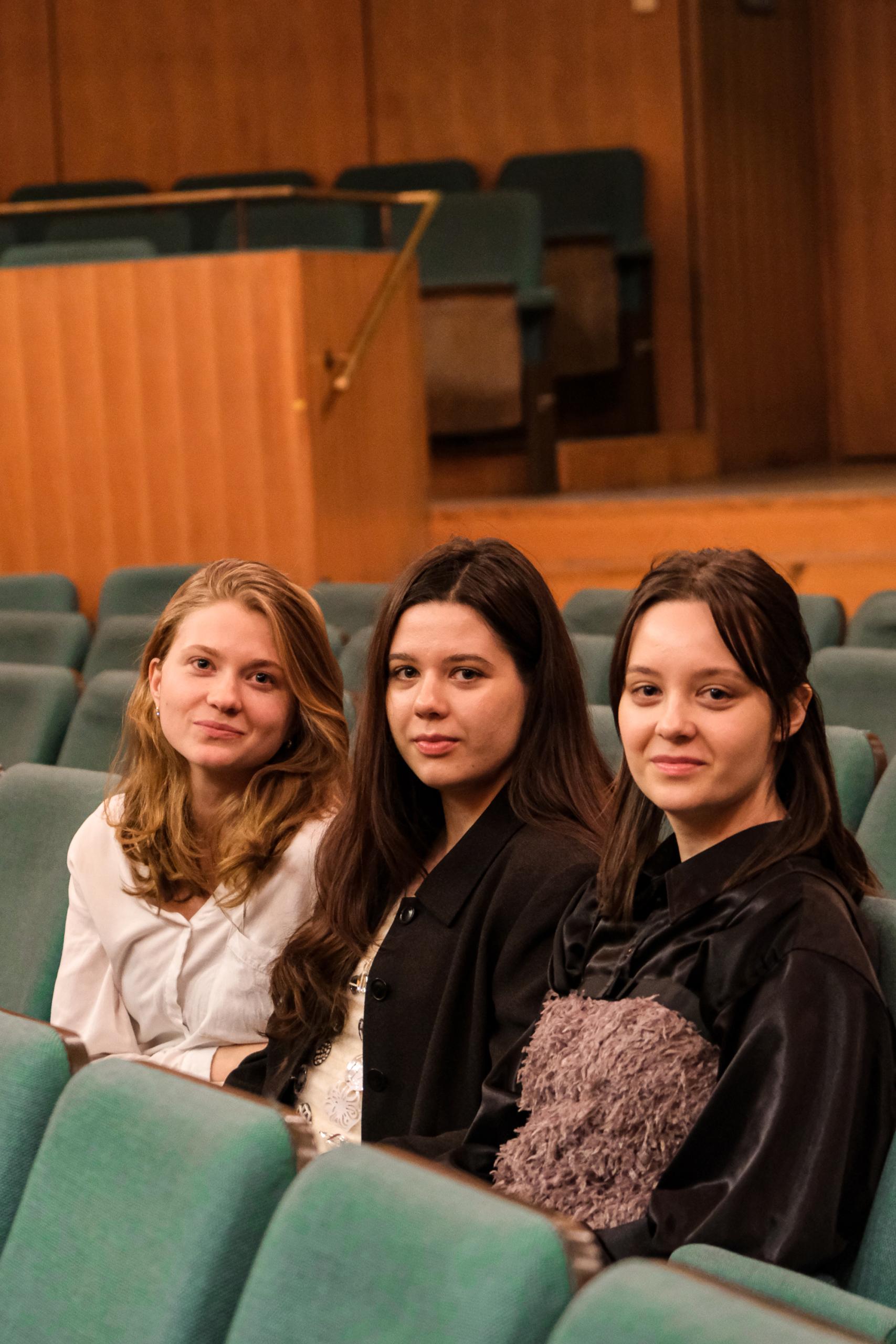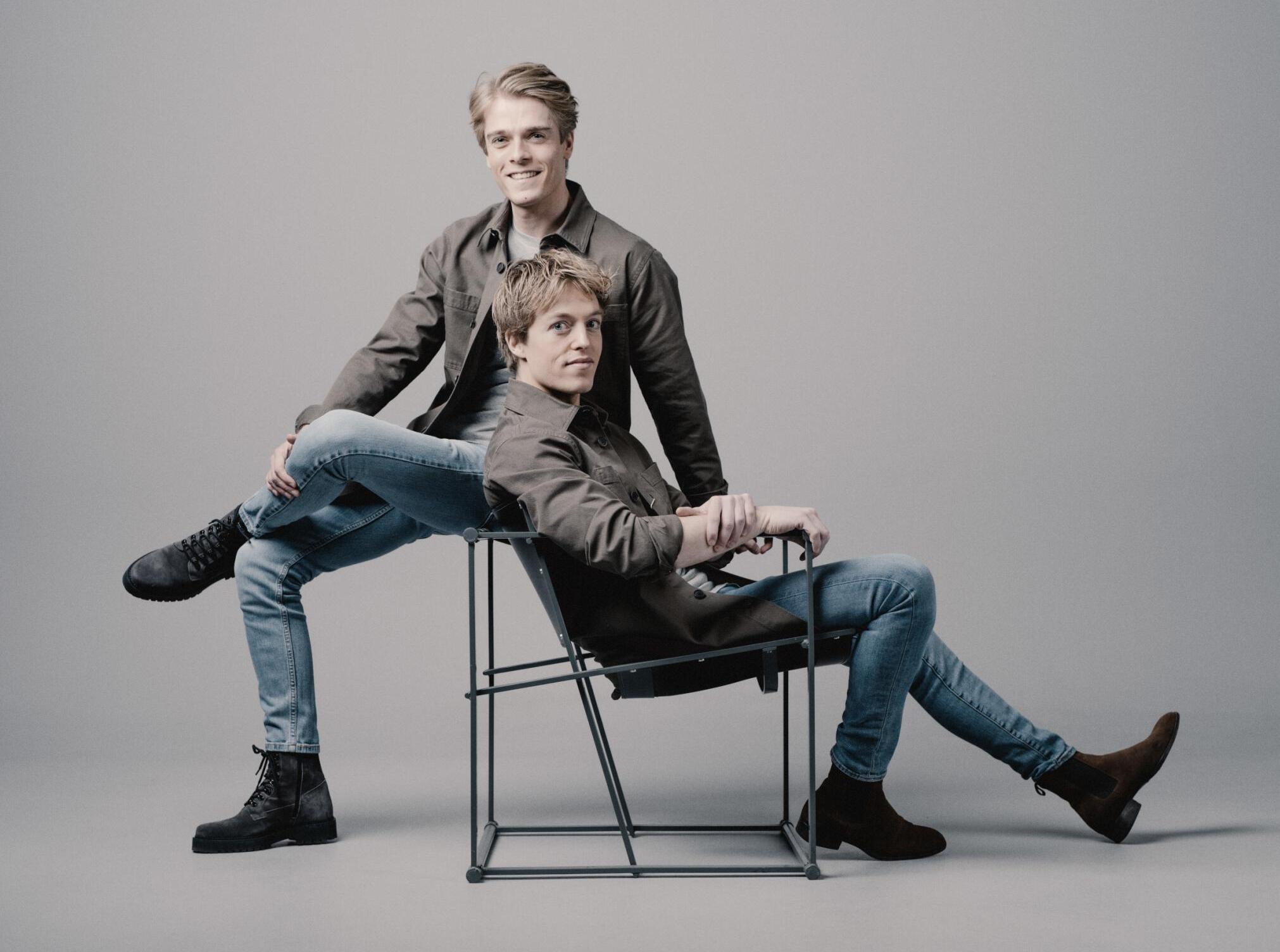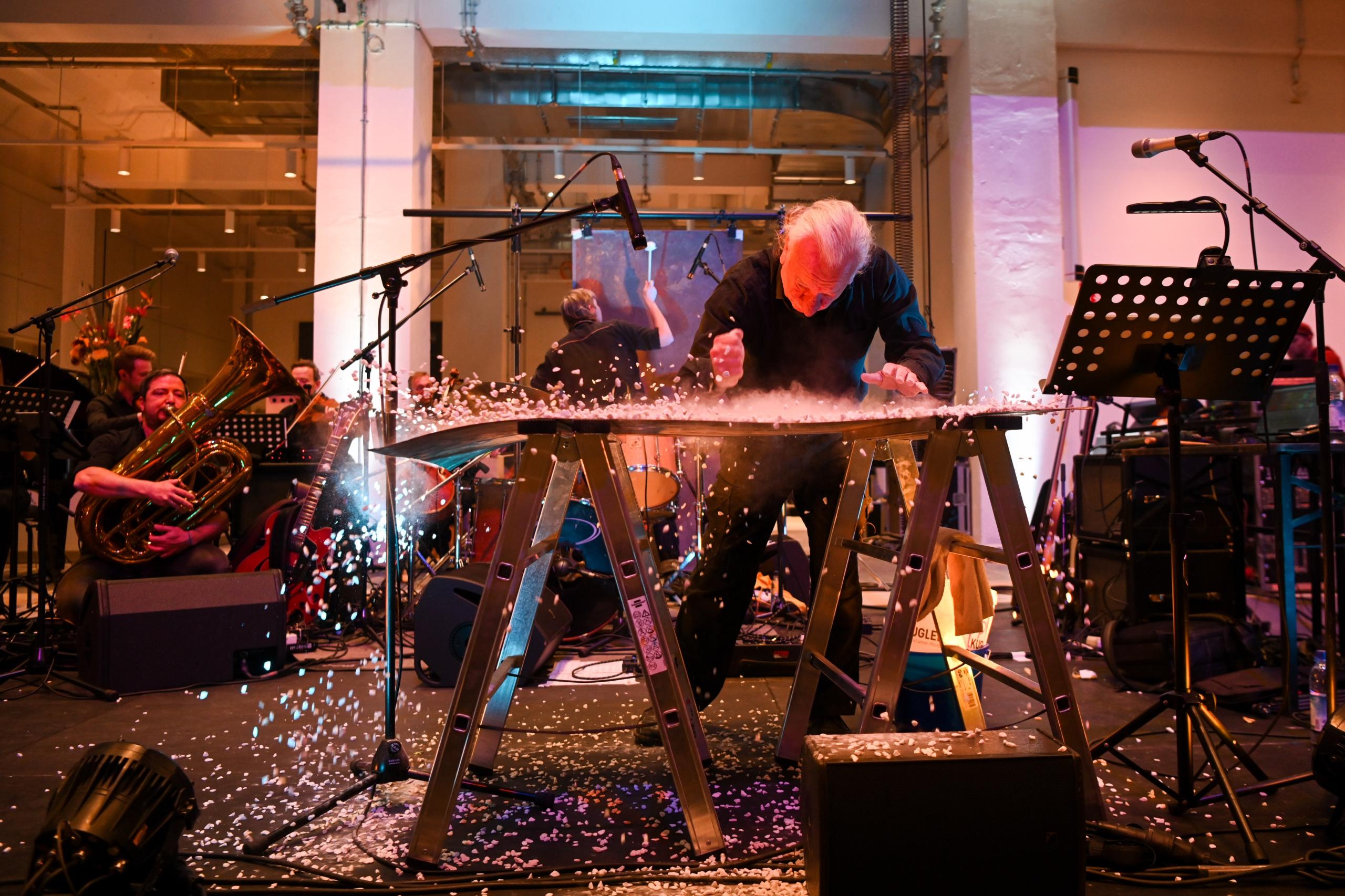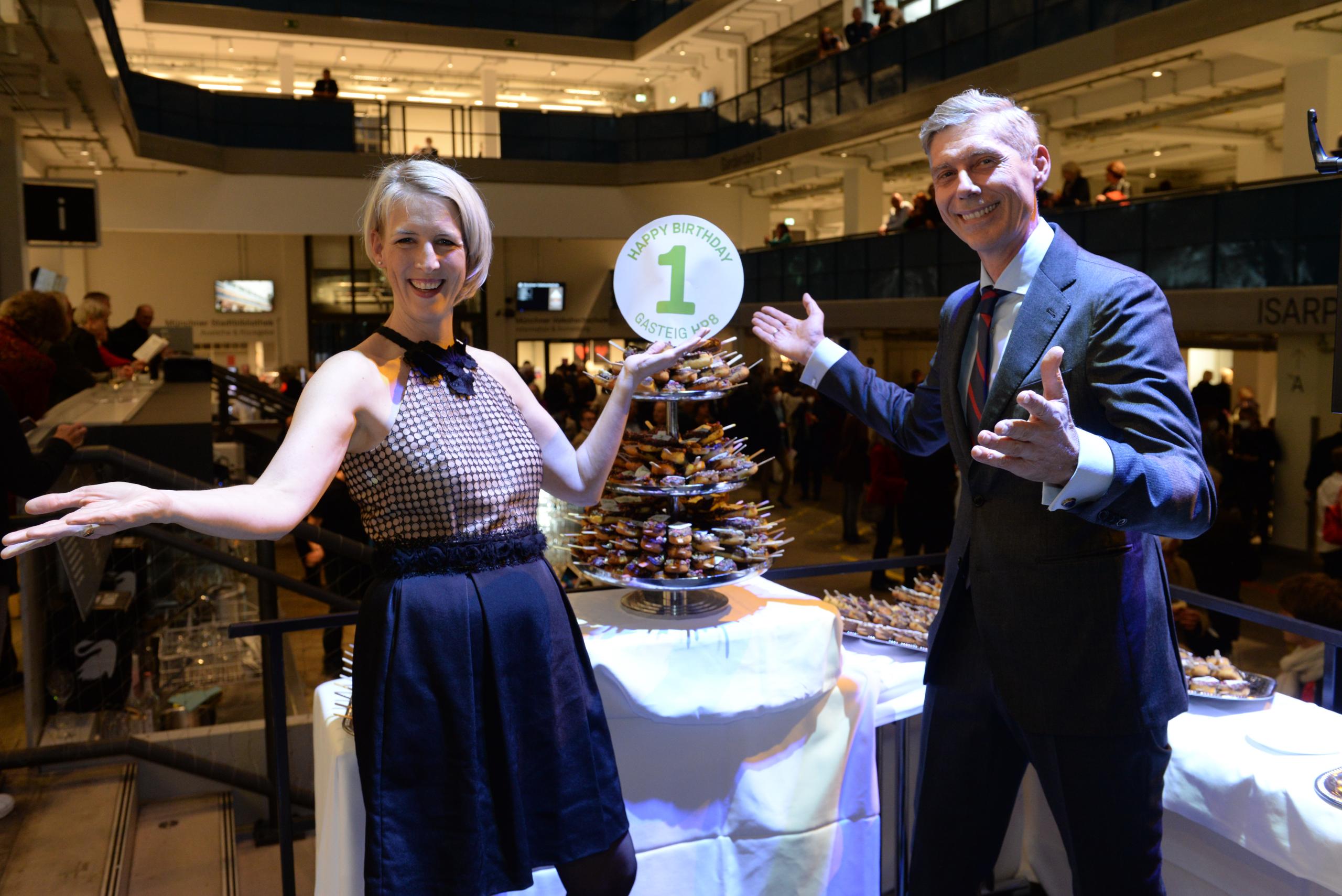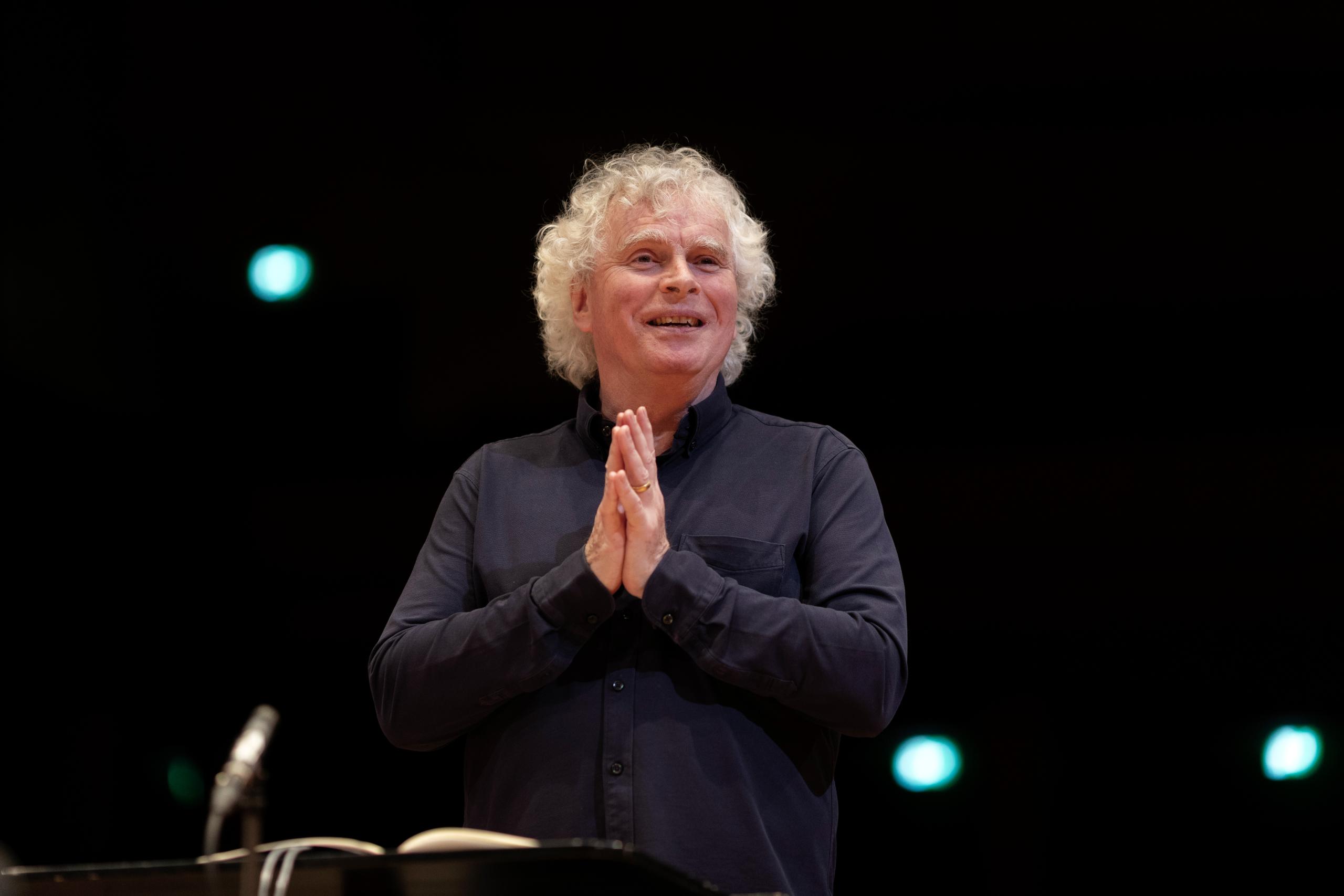With all their diversity and different fates, the Ukrainian refugee music students attending Dominik Pensel’s welcome talks had one thing in common: they all looked downcast and exhausted. “Those bags under their eyes, the exhaustion from their escape, their previous weeks’ experiences and the fear for their future were written in their faces”, says the student support representative at the HMTM.
Almost a year later, we look into three cheerful, open, curious pairs of eyes. Stanislava, Sophia and Yuliia are among the Ukrainian students currently enrolled at HMTM who have agreed to tell us about their past year’s experiences. The sisters Stanislava, 22, and Yuliia, 26, are from Odesa, where they studied viola and violin respectively at the music academy when Russia invaded.
“Music holds us together. For me, it was the reason for leaving home, but it also helped me find myself.”
Initially hoping for a quick end to the war, the two sisters decided to flee together with their family a month into the invasion. Their journey via Romania took them to Bavaria, where they were taken in by friends. Stanislava had heard of a professor in Munich with whom she wanted to study. So she contacted the university, which accepted both her and her sister in April 2022.
The HMTM was the first Bavarian university to develop a tailored visiting student programme that allows Ukrainian refugees to continue their studies and take the entrance exam for a full degree course. Bavaria had no prior legal or organisational framework for this kind of programme. “Our mission was to cushion the blow and enable further study,” says Dominik Pensel.

“When the war broke out, we quickly realised the dire situation of Ukrainians who had to flee their country. So we started to think about how the university could help as many refugee music, theatre and ballet students as possible and allow them to continue their studies”, says Pensel. A study and support programme for Ukrainian refugee students was set up in record time – a major challenge that involved plenty of hard work and commitment.
Sophia, 20, comes from Kyiv and is studying choral conducting. When Russia invaded, she fled to western Ukraine, where she helped other refugees but found that she increasingly missed music. Through a friend, she ended up in Zurich and later applied for a job in Munich. “It was a difficult decision to leave Ukraine all on my own. It was clear to me that if I was to stay, I may never have the chance to fulfil my dream of becoming a musician”, she says.
“Music helped us find our place. Not long after I’d arrived, I took part in an orchestra project. I immediately felt at home at the rehearsals and there was a sense of connection with everyone. Music is like family.”
In the first weeks of the war, the university received well over 200 applications from Ukrainians. Since academic criteria were not the main issue in selecting students for the programme, a procedure based on factors such as need, accommodation and diversity was developed. Many lecturers agreed to give tuition free of charge, and continue to do so to this day. This was a vital factor in allowing the university to admit 50 Ukrainian students as early as March and April last year.
By now, their number has risen to 70. As well as the actual tuition, the comprehensive package includes financial support, accommodation and German language courses as well as help in all aspects of life. For the three Ukrainians Yuliia, Sophia and Stanislava, fleeing the war and their new environment at the university only served to intensify their dream of pursuing a life in music.

More than a year of war and no end in sight. Alone and far from home, forever worried about her mother, brother and father, who is serving in the army, Sophia concedes that she has learned a lot about herself this past year: “Despite everything, it’s an experience that I wouldn’t want to miss. You can’t change the past and the terrible events taking place, but I’m grateful that I ended up here, and all this has made me stronger”, says the choral conducting student. Over New Year, she was able to visit her family and briefly saw her father, which she says was important for her: “My journey to Ukraine and back was like a key that helped me join up the past and present.”
And what of the future? “I want to make music and inspire others through my music”, is Sophia’s reply. The two others nod in agreement. It’s no coincidence that places like the conservatory in Kharkiv were destroyed, says Pensel. One of Russia’s war aims is to systematically wipe out Ukrainian culture. The University of Music and Performing Arts Munich wants to give back to the refugee students at least some of what was taken from them.
The HMTM at the Gasteig HP8
Project supporters: UNITEL Musikstiftung, Siemens Caring Hands, Stiftung Offene Chancen, Ernst von Siemens Music Foundation, Erika und Georg Dietrich Stiftung, Metropoltheater, Bavarian Ministry of Sciences and the Arts, and numerous private sponsors.
At the request of the HMTM, we have not given the interviewed students’ last names.
Text: Anna Steinbauer
